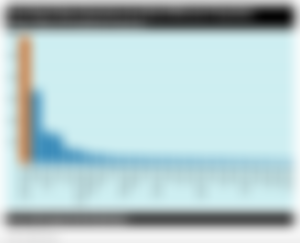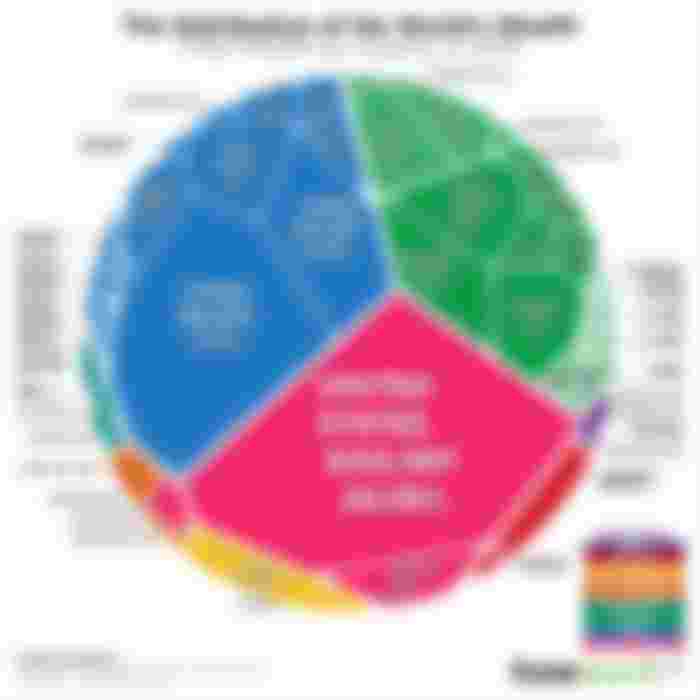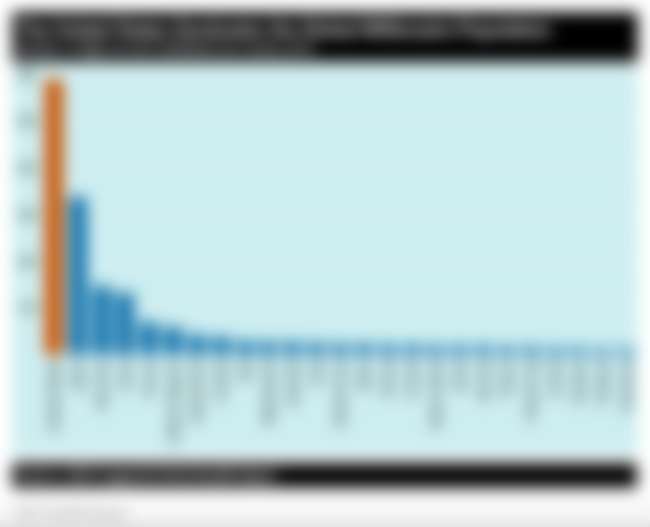Is The Middle-Class Really Disappearing? A Deep Dive
It seems as if people are always talking about the middle-class disappearing, but is this a myth? Numbers about the shrinking middle-class have been floating around for a few years now and seem to have reached a fever pitch recently.
It's difficult to deny that people across the board are facing substantial income inequality. Still, there's irritation around the phrase "middle-class". It feels like it's used to describe both a category of people – the actual middle-class – and the term "middle-class" as a concept – a socioeconomic standard to measure the amount of wealth a person has.
A recent study casts doubt on claims, that a middle-class is disappearing and suggests, that the middle-class is relatively unharmed in the last two generations of economic changes.

Middle-Class Definition
The phrase "middle-class" has been bandied about a great deal over the years and there are as many (or more) different ways of defining the class as there are people using the phrase.
Most often, the phrase has been used as a loose synonym for "non-upper-class" or "non-lower-class" – though frequently these categories exclude the very wealthiest people, who are often described as "upper-class" or "upper-middle class".
Another popular definition is the "purchasing power" of the middle-class, wherein the middle-class are those, who have the income and expendable resources to buy the goods and services available in a given market.
This is a practical definition, but it also has its shortcomings. If all the goods are available at the same price, then the class is merely in a stable equilibrium in which everyone has what they need. When one person has an advantage over another, then it's a question of power and not class.
A final definition, which includes all the above, is the "power of the market" (or the "power of the state" depending on your political leanings). This definition recognizes, that there is a relationship between the people in a given class and the class itself, wherein the actions of one are influenced by the other. It also recognizes that the class, is itself a social construct and is ever changing.
With this final definition in mind, the "middle-class" can be described as those who have power in the market, or who exercise power in the market. The more one has, and the more one exercises, the higher one is ranked in the social hierarchy, and thus one is considered to be part of the "middle-class".
As with any definition, there are a number of problems with this one. For one, it can be exclusive. If one does not have the requisite money or power to be included in a given class, then one is relegated to a lower class by definition.
For another, it can be self-perpetuating. The actions of the rich and powerful tend to reinforce their position and maintain their standard of living, at the expense of the less fortunate.
In spite of these issues, the "middle-class" is a useful concept to consider in the discussion of the state of the world today and throughout history.
Distribution Of Wealth

Over the course of several centuries, economic ideas and practices have produced a global economy in which a small handful of people have an enormous amount of wealth – while billions to survive remain in perpetual poverty.
In terms of income and wealth distribution, the world has tended to segregate itself into a few giant, ever-growing and ever-controlling classes: the rich (who are typically from the developed world); the "middle-class" (people from the developing world); and the poor (people from the planet's poorest and most-exploited nations).
These classifications can be difficult to define and even more difficult to justify from a moral standpoint. They presume a certain amount of consent, that many people would be hard-pressed to accept. Nevertheless, they're used as a point of reference in most economic discussions.
The Process Of Middle-Class Developments
It's possible to look at the processes by which the middle-class came to dominate the world and suggest that there may be a better way, but it's also clear that the status quo is immensely durable and unlikely to be overturned in the near future. The process is far from perfect, but there's little that can be done about it from the outside.
The first and most obvious reason is that the mass of people lack the power and resources to challenge the economic and political elites. Their lives are lived in a state of desperation and even that desperation tends to reinforce the elites, rather than threaten them.
Second is the historical tendency of "developing nations" to produce vast quantities of a few basic commodities, while importing little of value themselves. This tends to leave them with excessive amounts of these basic inputs and insufficient outputs.
A third reason is the role of technological innovations. Innovation is a "ruthless" and "short-sighted" process by which industries are destroyed and created. It's not an easy thing to oppose, but it is a dynamic process that tends to concentrate wealth and power in the hands of a few.
Fourth is the concept of comparative advantage. It's not a static concept. A nation can have a comparative advantage in producing one type of good, but not another. For example, it might be more efficient for the Irish to grow food, because the climate is better suited to that, but it would be a waste of resources to produce shoes, when no one in their right mind would wear them.
A fifth reason is the role of trade and international relations. Nations are dynamic things. They can rise and fall, or shift in alliances. Political and economic decisions are made by powerful entities, that balance short-term gains with long-term risks.
The question then becomes, how does one challenge the system when one is weak in the ways that matter?
Inequality Between The Classes

Many people feel that economic and social inequality are immoral and unacceptable; that they are contrary to the basic principles of a moral and civilized society. They're not alone. In one form or another, these ideas have been present in various societies throughout history. The challenge for some is how to realize their ideals. There is no simple or direct answer to that. For others, the task is to find a way to live with it.
Of course, it's not just a question of how we're going to live with it. It's how we've lived for centuries – or at least, how we've lived since the invention of agriculture. Life before that was, well, living in the woods. Most pre-agricultural societies were nomadic and so were essentially equal. Once settled, they became sedentary and so became unequal. Life was indeed different, but it was lived by all.
There is no reason to believe, that a world in which all people have an equal chance to live is either impossible or undesirable. On the contrary, there are many reasons to believe that it's not only possible, but necessary.
It's worth noting that, while the world has never been what anyone would call "perfect" in terms of the distribution of wealth and resources, it has never been so unequal as it is today. In many ways, it has been a system of "global apartheid", where a handful of powerful countries enjoy an inordinate amount of economic and political power over much of the rest of the world. The modern "middle-class", while a useful designation, tends to obscure this simple fact.
To be clear, there are no inherent or objective moral values associated with having "too much." There are only perceptions and values. Most people in the West tend to think, that greater economic equality is desirable. Most people in the West are wrong. The challenge with any kind of moral argument is that it's so obviously true, that it's hard to refute. Like most truths, it's self-evident. Anyone who wants to argue for it has to argue against something else.
Now, there is no shortage of people willing to make the case, that these sorts of things are undesirable. They tend to do so by appealing to ethics, religion, politics, economics, philosophy, or some other complex subject. In the end, it really comes down to which one of these other things you find more desirable. If you think that some inequality is desirable, then clearly a world in which that is not the case would be inferior. If you think that the pursuit of wealth is desirable, then you must at least think that it should be pursued in a moral way.
The question then becomes, what exactly does it mean to pursue something in a moral way?
Thank you for reading.
Lead image source: https://medium.datadriveninvestor.com/inflation-is-a-tax-on-the-middle-class-307b1c04d3d1





Merry Christmas ❤️